What Makes a CRM Platform Stand Out
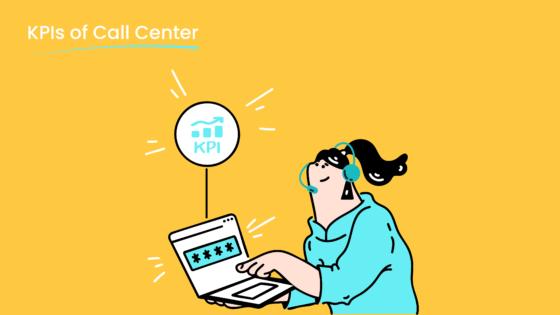
A powerful CRM platform can transform your business by improving operational efficiency and boosting customer satisfaction. You should look for CRM software that offers usability, seamless integration, customization, scalability, strong support, and transparent pricing. Companies using CRM report a 27% increase in customer retention and a 47% boost in customer satisfaction.
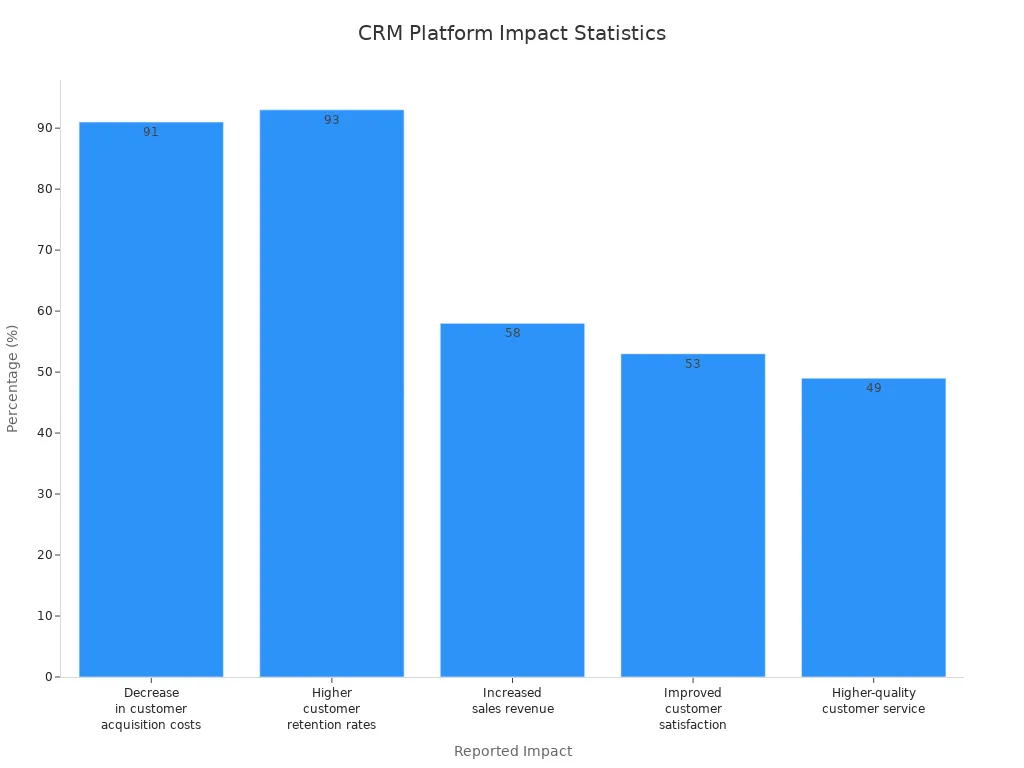
Sobot leads with unified solutions like the Sobot call center and Sobot AI, helping you deliver consistent service across every channel.
CRM Platform Criteria
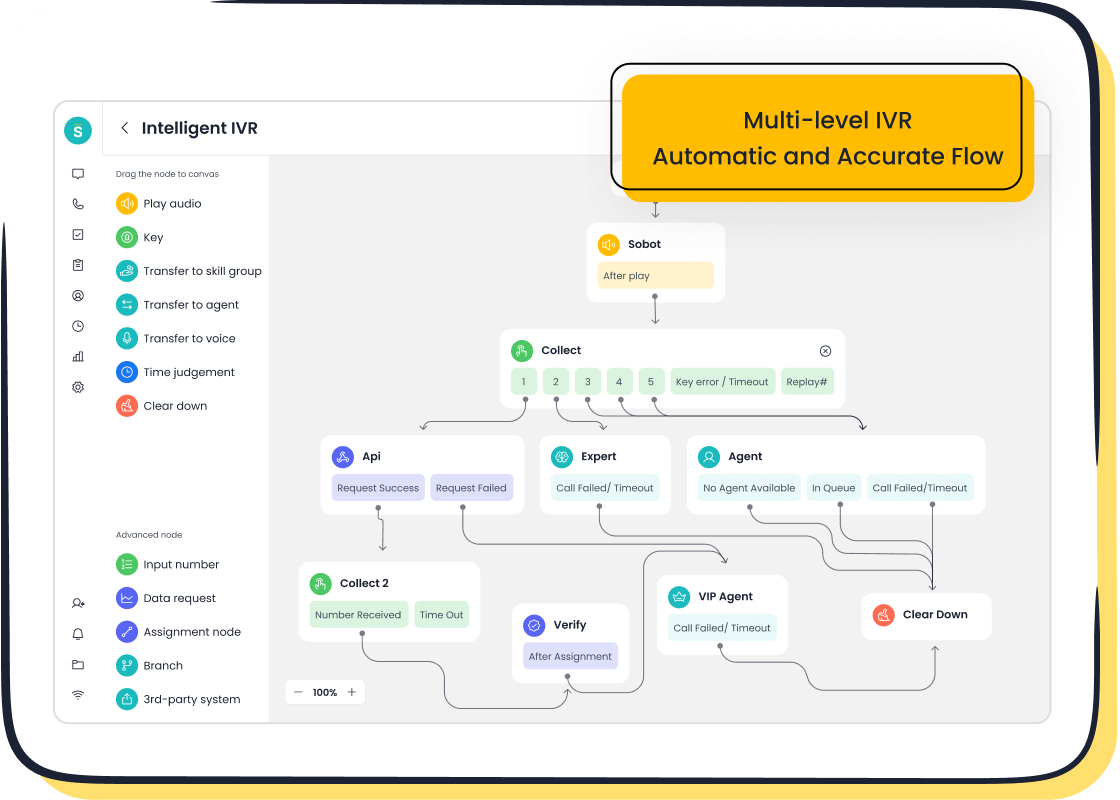
Usability
You want a crm platform that makes work easier for your team. Usability means agents can find information quickly and help customers without delay. Sobot’s Voice/Call Center gives you a unified workspace, so agents see all customer details in one place. This reduces confusion and saves time. Samsung improved agent efficiency by 30% after switching to Sobot, showing how usability boosts results.
Here are key usability metrics for crm software:
| Metric | Description |
|---|---|
| Customer Satisfaction Level | Measures how satisfied customers are with the service provided by the crm. |
| Customer Retention Rate | Shows how many customers stay with your business over time. |
| Lead Conversion Rate | Tracks how well you turn leads into customers. |
| Average Conversion Time | Measures how fast leads become customers. |
System quality and information accuracy also matter. A reliable crm platform helps agents work faster and improves customer satisfaction.
Integration
Integration lets your crm software connect with other tools, like sales automation platforms or ticketing systems. Sobot’s omnichannel solution links voice, chat, email, and social media, so you get a complete view of every customer.
Top integration features include:
| Integration Capability | Description |
|---|---|
| Seamless Data Flow | Shares data across platforms for better teamwork. |
| Automation | Removes manual data entry, saving time and reducing errors. |
| Centralized Insights | Puts all customer data in one place for easy access. |
When your crm platform integrates well, your team works together smoothly. Automatic syncing keeps data accurate and up-to-date.
Customization
You need crm software that fits your business. Customization lets you change workflows, dashboards, and fields. Sobot’s Voice/Call Center offers flexible IVR menus and smart routing, so you can tailor customer journeys. Leading crm platforms like Zoho and Monday provide custom templates and automation, but Sobot stands out with its AI-powered voicebot and multilingual support.
Scalability
As your business grows, your crm must keep up. Sobot’s platform supports global telephony and handles millions of interactions daily. Samsung’s story shows how Sobot scales for large enterprises, unifying channels and boosting efficiency. Big organizations use crm platforms like Salesforce to manage complex pipelines and sales automation across countries.
Support
Strong support helps you solve problems fast. Sobot offers full-cycle support, from setup to ongoing help. Research shows that good crm support increases customer retention and satisfaction. Top vendors like HubSpot and Salesforce also provide high-level support, but Sobot’s customer-centric approach ensures you get help when you need it.
Pricing
Pricing affects your total cost. Most crm platforms use subscription models, with costs based on users, contacts, and features. Sobot’s economic SaaS rental model gives you flexibility and value. Look for transparent pricing and consider extra costs for customization, data storage, and support.
CRM Software Reviews
Choosing the right crm software can shape your customer service and support success. You want a solution that fits your team, grows with your business, and helps you deliver a great customer experience. Let’s look at four leading options in the crm platform market. These software reviews will help you compare their strengths in customer service and support.
Zoho CRM
Zoho CRM stands out for its balance of features and value. You get tools for managing leads, automating workflows, and tracking customer interactions. Many businesses choose Zoho CRM because it is easy to set up and use. The platform supports sales automation and offers a range of integrations with other business tools.
You can see how users rate Zoho CRM in customer service and support:
| Aspect | Rating |
|---|---|
| Satisfaction of Cost Relative to Value | 84 |
| Customer Service Management | 83 |
| Vendor Support | 80 |
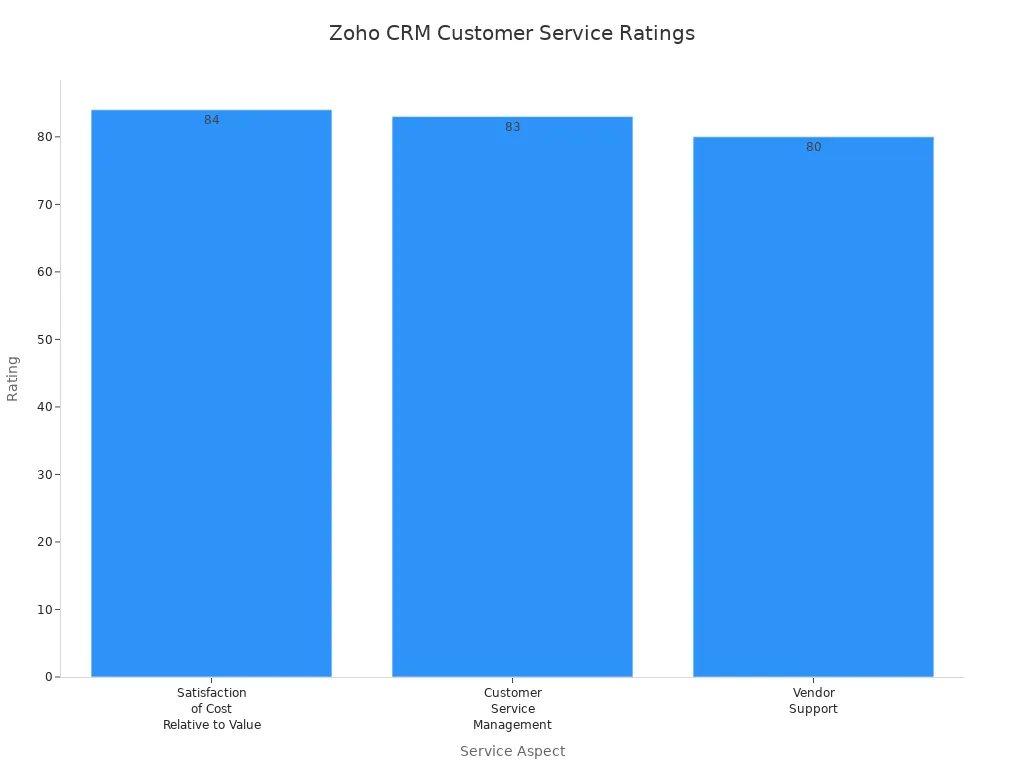
Zoho CRM gives you a simple interface and strong automation features. You can customize dashboards and reports to fit your needs. The platform also helps you manage customer data and track support tickets. Many users like the value they get for the price. However, some teams may find advanced features less flexible than those in larger enterprise solutions.
Tip: If you want a crm that balances cost and features, Zoho CRM is a solid choice for small and medium businesses.
Salesforce CRM
Salesforce CRM is one of the most popular crm platforms in the world. You get deep customization, advanced analytics, and a wide range of integrations. Salesforce CRM works well for large organizations that need to manage complex customer service operations.
Here is a quick look at Salesforce CRM’s strengths and weaknesses for customer service teams:
| Strengths | Weaknesses |
|---|---|
| Deep customization and advanced capabilities for enterprises. | Complexity of tools can hinder onboarding, especially for smaller teams. |
| Integration of AI, automation, and extensive AppExchange resources. | Costs can escalate quickly due to a layered pricing model. |
| Advanced analytics tools supported by Tableau. | Slightly lower user rating (4.4 stars) compared to competitors (4.5 stars for Microsoft Dynamics). |
| Unique product discovery tool: My Service Journey for roadmap planning. |
Salesforce CRM supports customer service teams with features like case management, omnichannel routing, and AI-powered insights. You can automate repetitive tasks and use advanced analytics to improve your support process. The platform’s AppExchange gives you access to thousands of add-ons.
Salesforce CRM has proven results in large-scale support environments. Here are some real-world outcomes:
| Case Study Title | Key Outcomes |
|---|---|
| Delivering Exceptional Member Support with Unified Platforms | Reduced agent burnout, increased member satisfaction, improved compliance. |
| Improving Member Support with a Unified Platform and Marketing Journeys | Centralized support, improved member satisfaction, faster case resolution, increased agent efficiency. |
| How a Home Health Company Built a High-Volume Call Center in Just Weeks | Quickly built a powerful call center to handle a surge in new patients. |
| Tackling Marketing Challenges Head-On with Salesforce Managed Services | Drove member engagement and improved data management at a large dental insurer. |
You can use Salesforce CRM to build a high-volume call center or manage complex support workflows. The platform’s flexibility and power make it a top choice for enterprises, but smaller teams may find it harder to learn and more expensive to scale.
HubSpot CRM
HubSpot CRM is known for its user-friendly design and free entry-level plan. You get tools for contact management, email tracking, and ticketing. Many businesses like HubSpot CRM because it is easy to start and integrates with marketing and sales tools.
You should know that HubSpot CRM can face challenges with integration and automation, especially as your business grows. When you manage support at scale, you may see performance bottlenecks or integration failures. Automation workflows sometimes underperform, which can disrupt your operations. These issues often come from the complexity of the platform and the need for custom development or third-party integrations.
Note: If you have a small team or want to try crm software without a big investment, HubSpot CRM is a good starting point. For larger support teams, you may need extra development support to keep everything running smoothly.
Sobot Voice/Call Center

Sobot Voice/Call Center gives you a powerful crm platform designed for customer service, support, and contact centers. You get a unified workspace where agents can manage calls, messages, and customer data in one place. This setup helps your team respond faster and deliver a better customer experience.
Key features include:
- AI-powered Voicebot: Sobot’s voicebot understands customer intent and handles routine questions. This frees your agents to focus on complex issues.
- Unified Workspace: All customer interactions—calls, chats, emails, and tickets—appear in one dashboard. Agents see complete customer histories, which helps them solve problems quickly.
- Global Telephony: Sobot supports phone numbers in over 50 countries. You can serve customers worldwide with reliable call quality.
- Intelligent IVR and Smart Routing: You can customize call flows and route calls to the right agent or team. The drag-and-drop IVR builder makes setup easy.
- Real-Time Monitoring and Analytics: You get live dashboards and detailed reports. Managers can track agent performance and customer satisfaction.
- Omnichannel Integration: Sobot connects voice, chat, WhatsApp, email, and social media. You can manage all channels from one platform.
- Mobile Compatibility: Agents can use Sobot on Android and iOS devices, so they stay connected anywhere.
Sobot’s crm software supports over 10,000 brands across industries like retail, finance, gaming, and manufacturing. Samsung used Sobot to unify its customer service channels and saw a 30% boost in agent efficiency. The platform’s 99.99% uptime and secure, encrypted data transfer ensure your operations run smoothly.
Sobot’s economic SaaS rental model gives you flexibility and value. You can scale up as your business grows without worrying about system limits.
Sobot also offers live chat, AI chatbot, ticketing system, and WhatsApp Business API. These tools help you automate support, manage tickets, and engage customers on their favorite channels. The platform’s AI and automation features reduce agent workload and improve first-contact resolution rates.
If you want a crm platform that combines advanced technology, global reach, and easy integration, Sobot Voice/Call Center is a strong choice for businesses of any size.
Enterprise CRM Software Comparison
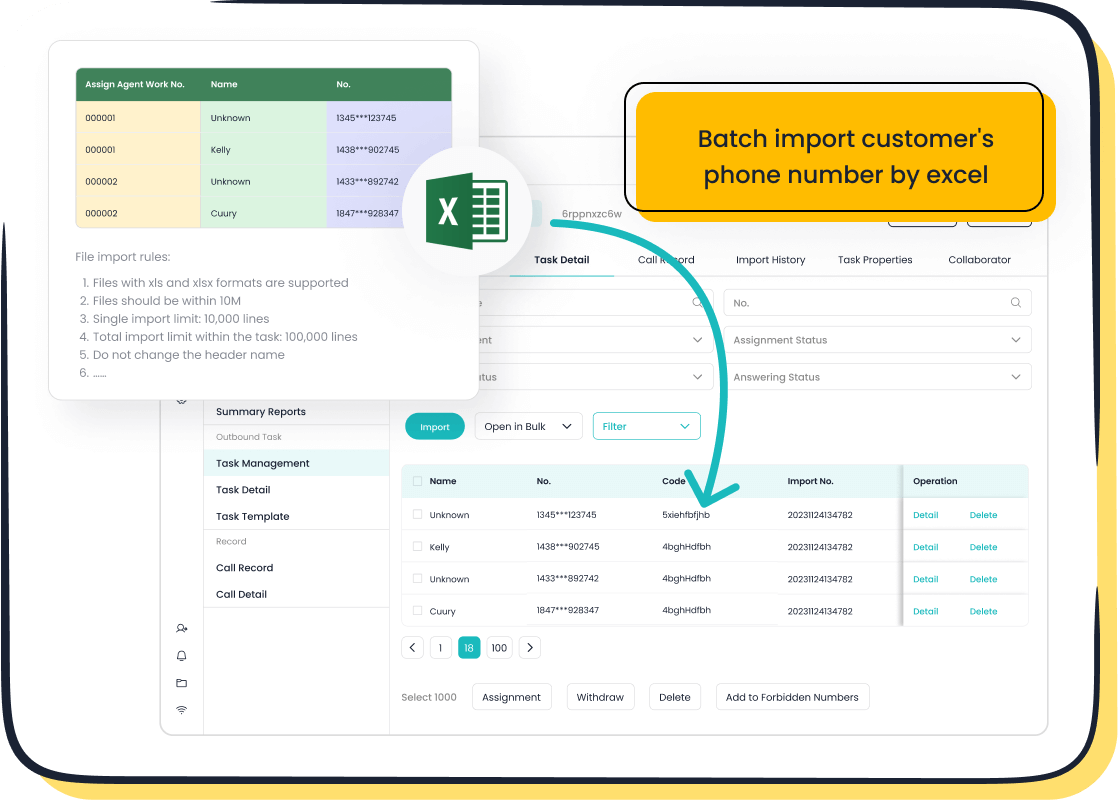
When you choose enterprise crm software, you want to see how each platform stacks up. You need to know which features matter most for your business. You also want to understand the pros and cons and see real-world use cases. This section helps you compare top enterprise crm software options, including Sobot, Salesforce, Zoho, and others.
Feature Table
You can use this table to compare key features of leading enterprise crm software. Each platform offers different strengths, so you should look for the ones that match your needs.
| CRM Platform | Key Features | Pricing Structure |
|---|---|---|
| Sobot Voice/Call Center | Unified workspace, omnichannel integration, AI-powered voicebot, global telephony, real-time analytics, stable system (99.99% uptime), smart IVR, mobile compatibility | Economic SaaS rental model, flexible pricing |
| Salesforce CRM | Contact management, sales automation, customizable dashboards, advanced analytics, AppExchange, omnichannel routing, AI insights | Starts at $25/user/month (Starter Suite) |
| Zoho CRM | Omnichannel management, AI assistant, customizable workflows, ticketing, automation, reporting | Starts at $14/user/month (Standard tier) |
| Microsoft Dynamics 365 Sales | Sales tracking, AI insights, automation, integration with Microsoft products | Starts at $65/user/month (Professional tier) |
| Monday.com CRM | Customizable workflows, automation, dashboards | Starts at $12/seat/month (Basic tier) |
| Pega CRM | Workflow automation, AI decision-making, omnichannel engagement | Pricing available upon request |
| Oracle Sales | AI-driven sales automation, customer journey mapping | Pricing available upon request |
| SAP Sales Cloud | Sales automation, customer data platform, predictive analytics | Pricing available upon request |
| ServiceNow CSM | Case management, workflow automation, AI agents | Pricing available upon request |
| Nutshell | Contact management, sales automation, AI-powered analytics | Starts at $13/user/month (Foundation tier) |
| SugarCRM | Lead management, marketing automation, reporting and analytics | Pricing varies among options |
| SuperOffice | Pipeline insights, automation, performance monitoring | Pricing offered in euros |
You see that Sobot Voice/Call Center stands out with its unified workspace and omnichannel integration. You get AI-powered voicebot and global telephony, which help you serve customers anywhere. The stable system with 99.99% uptime means you can trust your operations to run smoothly. Sobot’s flexible pricing lets you scale as your business grows.
Pros and Cons
You should weigh the pros and cons of each enterprise crm software before making a decision. Here is a quick overview:
Sobot Voice/Call Center
- Pros:
- Unified workspace for all customer interactions
- Omnichannel integration (voice, chat, email, WhatsApp, social media)
- AI-powered voicebot for routine tasks
- Global telephony and mobile compatibility
- Stable system with 99.99% uptime
- Flexible SaaS pricing
- Fast deployment and easy integration with existing systems
- Real-time analytics and monitoring
- Cons:
- Advanced features may require training for maximum benefit
Salesforce CRM
- Pros:
- Deep customization and advanced analytics
- Large ecosystem with AppExchange
- Strong sales automation and contact management
- Omnichannel routing and AI insights
- Cons:
- Complex tools can slow onboarding
- Pricing can escalate quickly
Zoho CRM
- Pros:
- Easy to use and set up
- Good value for small and medium businesses
- Omnichannel management and automation
- Customizable workflows
- Cons:
- Advanced features less flexible for large enterprises
Microsoft Dynamics 365 Sales
- Pros:
- Integration with Microsoft products
- AI insights and automation
- Strong sales tracking
- Cons:
- Higher starting price
- May require Microsoft ecosystem for best results
Monday.com CRM
- Pros:
- Customizable workflows
- Simple dashboards
- Affordable pricing
- Cons:
- Limited advanced crm features
You see that Sobot offers a strong mix of stability, integration, and omnichannel capabilities. You get a platform that grows with your business and supports global operations.
Best Use Cases
You want to know which enterprise crm software works best for your industry and business size. Here are some real-world use cases:
| CRM Platform | Enterprises Using It | Best Use Cases |
|---|---|---|
| Sobot Voice/Call Center | Samsung, OPPO, Philips, Luckin Coffee, HP, Renogy, Michael Kors, Mico | Large enterprises needing unified customer contact, omnichannel support, global telephony, AI automation, and high system stability |
| Salesforce CRM | Gucci, Ford, IBM, Santander, Uber | Enterprises with complex sales automation, advanced analytics, and large support teams |
| Zoho CRM | Bose, Fossil, Puma, Tassal | Small and medium businesses seeking easy setup, automation, and omnichannel management |
| Microsoft Dynamics 365 | EY, Mercedes-Benz, HP, Hitachi, Coca-Cola | Enterprises using Microsoft products, needing sales tracking and AI insights |
Sobot Voice/Call Center works well for large enterprises that need to unify customer contact channels. Samsung used Sobot to connect voice, chat, email, and social media in one platform. You can see how Samsung improved agent efficiency by 30% and reached a 97% customer satisfaction rate. Sobot’s omnichannel solution helped Samsung manage millions of interactions daily, showing how enterprise crm software can transform customer service.
If you run a global business, you need enterprise crm software that supports multiple channels and languages. Sobot gives you global telephony and multilingual support. You can automate routine tasks with AI-powered voicebot and chatbot. You also get real-time analytics to monitor performance and improve service quality.
Salesforce CRM fits enterprises with complex sales automation needs and large support teams. You get advanced analytics and deep customization. Zoho CRM suits small and medium businesses that want easy setup and automation. Microsoft Dynamics 365 works best for companies using Microsoft products and needing strong sales tracking.
Tip: When you choose enterprise crm software, match your business needs to the platform’s strengths. If you want stability, integration, and omnichannel capabilities, Sobot Voice/Call Center gives you a proven solution for large enterprises.
Choosing the Right CRM
Assess Needs
You need to start by understanding what your business wants to achieve with a crm. Think about your goals for customer service, support, and contact center operations. A crm should help you reach these objectives. You should look at how your team works and what challenges you face.
Here is a table that shows important criteria to consider when you assess your needs for a crm:
| Criteria | Description |
|---|---|
| Ease of Use | A simple interface helps your team learn quickly and work efficiently. |
| Scalability | The crm should grow with your business and handle more customers over time. |
| Customization | You can adjust features to fit your business processes. |
| Integration Capabilities | The crm connects with your current tools for better data access. |
| Mobile Accessibility | Your team can use the crm anywhere, even on mobile devices. |
| Reporting and Analytics | You get clear data to make smart decisions. |
| Security | The crm protects customer information. |
| Costs | You know the total cost before you choose. |
| Customer Support | Reliable help makes switching to a new crm easier. |
| Software Demos | Try demos to see how the crm works in real situations. |
You should also identify your top priorities. Do you want faster response times? Are you looking for better data insights? Your answers will guide your crm selection.
Match to Platform
Once you know your needs, you can match them to the strengths of each crm platform. Look for a crm that supports your main goals and fits your workflow.
Here are key factors to consider when you match your needs to a crm:
- Integration capabilities help your crm work with your existing systems.
- User experience makes it easy for your team to adopt the crm.
- Customization and training let you adjust the crm and teach your staff.
- Alignment with your business objectives ensures the crm supports your strategy.
If you want a unified, scalable, and AI-driven crm, Sobot is a strong choice. Sobot offers an all-in-one contact center, omnichannel AI, and secure data management. You get scenario-based AI for industries like retail and e-commerce. Sobot’s proven success with brands such as Samsung shows reliability and effectiveness. You can trust Sobot to help your business grow and improve customer satisfaction.
Tip: Always match your crm platform to your business needs. A good crm helps you engage customers, improve efficiency, and reach your goals.
You want a CRM platform that stands out for usability, integration, customization, scalability, support, and pricing. Match your business needs to the strengths of each CRM. Sobot’s innovation and customer-centric approach deliver proven results across industries.
| Business Type | Result Description | Metrics Achieved |
|---|---|---|
| Ecommerce | AI-powered sentiment analysis enhances customer experience | Competitive edge in service |
| Life Sciences | Agilent boosted service efficiency sixfold | 6x efficiency increase |
| Technology | OPPO reached 83% resolution and 94% positive feedback | 83% resolution, 94% positive rate |
Choose Sobot for unified contact solutions and reliable support, whether you run ecommerce, life sciences, or technology businesses.
FAQ
What is a CRM platform?
A CRM platform helps you organize customer information, track interactions, and improve service. You use it to manage sales, support, and marketing in one place. This makes your team work faster and helps you keep customers happy.
How does Sobot improve customer management?
Sobot gives you a unified workspace for calls, chats, and emails. You see all customer details in one dashboard. This helps you respond quickly and manage customer management tasks more efficiently.
Can I integrate my existing tools with Sobot?
You can connect Sobot with popular systems like Salesforce and Shopify. Integration lets you share data across platforms. This helps your team work together and keeps information accurate.
Is Sobot suitable for global businesses?
Sobot supports global telephony and multilingual features. You can serve customers in over 50 countries. Samsung used Sobot to manage millions of interactions daily and improved agent efficiency by 30%.
What support does Sobot offer?
You get full-cycle support from setup to ongoing help. Sobot provides training, technical support, and regular updates. This ensures your team can use the platform effectively and solve problems quickly.
See Also
Key Benefits of CRM Software for Call Centers
Best No-Cost CRM Solutions for Call Centers in 2024
Comparison of Leading Voice of Customer Tools
Reviews of Leading Cloud Contact Center Services for 2024
Comprehensive Guide to Omnichannel Solutions for Call Centers
